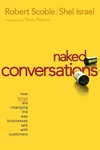Spamhaus is non-profit organization set up by Steve Linford in 1998 whose mission is to track the worst of organized spam operators. It provides anti-spam intelligence to internet services, Law Enforcement Agencies, and government anti-spam legislation. The organization is staffed by the world’s foremost anti-spam specialists whose “spammer blacklist” (ROKSO) is widely used in anti-spam filters by ISPs and webmail companies, including hotmail.com.
In an astonishingly misguided ruling, e360 Insight LLC a Chicago bulk-emailer won damages against spamhaus for being included in the Spamhaus blacklist. Spamhaus disagree on the facts of the case and on the jurisdiction, but did not appear at the US district court of Illinois; non-profit organizations of limited means cannot defend against disputes in all worldwide jurisdictions.
The bulk mailer won the $11.7m compensation, and Spamhaus was found to be in contempt of court after it failed to pay or remove the company’s name from its blacklist.
Furthermore, the order, which is being considered by district judge Charles P Kocoras, proposed that ICANN suspend spamhaus.org’s domain name until spamhaus comes to rule. ICANN has refused the request,
…. ICANN cannot comply with any order requiring it to suspend or place a client hold on Spamhaus.org or any specific domain name because ICANN does not have either the ability or the authority to do so. Only the Internet registrar with whom the registrant has a contractual relationship – and in certain instances the Internet registry – can suspend an individual domain name.
And since the internet registrar in question is likely to be outside the Illinois court jurisdiction, Spamhaus should be safe from the courts ridiculous verdict.
Geographical Jurisdiction over the Internet
The issue of geographical and national jurisdiction over the internet is central, again.
It is absurd that the Illinois court claim legal jurisdiction over a worldwide case. Few organizations have the legal budget to fight hostile legal claims worldwide. Some form of supra-national organization should be given legal juridiction for this type of internet based conflict. Spamhaus’ states
Spamhaus is however concerned at how far a U.S. court will go before asking itself if it has jurisdiction, and is intending to appeal the ruling in order to stamp out further attempts by spammers to abuse the U.S. court system in this way
The particulars of the case exaggerate how badly some local courts approach internet based disputes. A not-for-profit organization like Spamhaus is funded through low service fees from their users, and voluntary contributions by internet companies. Such limited funds do not provide for fighting legal cases in all country and state jurisdictions.
Illinois Court’s Competence on Internet Issues
The courts’s competence seems dubious also. The authority and competence of spamhaus over their anti-spam blacklist has been praised widely by many instititutions. Spamhaus itself states
….The Illinois ruling shows that U.S. courts can be bamboozled by spammers with ease, and that no proof is required in order to obtain judgments over clearly foreign entities…
Resources to Fight Spam
It is annoying to Spamhaus contributors how funds and resources are wasted at the expense of the internet community as a whole. Spamhaus’ non-appearance at the court case is a logical response.
The case mirrors how easily commercial interests manipulate government on Net Neutrality legislation. How Judge Charles Kocoras and the Illinois court fail to balance the bulk mailer’s arguments against pressing public interests, as expressed by the CAN-SPAM act, is beyond me.
[Via
Spamhaus domain name may be suspended – ZDNet UK News,
Illinois local legal commentary of the case here
ICANN Grants Temporary Reprieve to Spamhaus]
[Disclosure: Eucap portfolio companies invest heavily in anti-spam mechanisms. Plus I hate spam]









